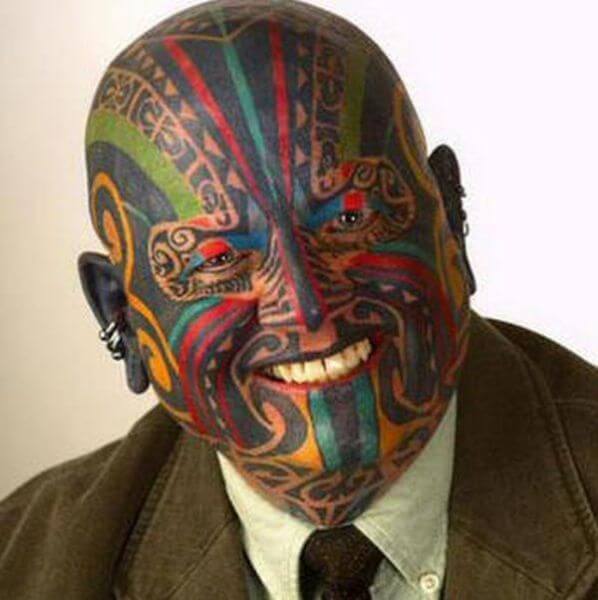More than 40 percent of the U.S. workforce still believe visible tattoos are inappropriate in the workplace, yet 45 million Americans have them. With times changing and generational gaps widening on the issue, do employers still have reason to raise an eyebrow? And do you, as an employer, still have the right to restrict tattoos without backlash?
The Houston Police Department recently struggled with that same question and came to a controversial conclusion. (Hint: it’s one that has inked police officers rolling up their sleeves and clapping.)
In 2004, the Houston Police Department outlawed visible tattoos among its officers. It was an interesting move at an interesting time in which visible tattoos were coming into the mainstream. The move also forced many Houston police men and women to stay fully covered up even during Houston’s boiling summer months. It wasn’t until 2016 when the department relaxed its rules, allowing officers to wear short sleeve uniforms, as long as those with visible arm tattoos wore nylon coverings over them. (What’s the point of wearing short sleeves, then? We wondered the same thing.)
But now, under Police Chief Art Acevedo (formerly the chief in Austin), Houston police officers are finally able to “bare arms” as long as their tattoos:
1. Aren’t racially discriminatory or otherwise offensive.
2. Don’t cover the hands, neck or face.
The new policy seems to reflect how many businesses in a variety of industries view tattoos these days. “Barring extreme cases such as face or offensive tattoos, we generally are much more concerned with someone’s ability to perform on the job than what tattoos they have,” says Michael Lerner, Executive Chef at Dang Kitchen in Austin.
But what if you do want to restrict tattoos in a more traditional way?
According to Amy Beckstead, partner at Beckstead Terry, LLC, banning the display of visible tattoos can be legal. She adds that even companies that don’t mind visible body art can benefit from including language about it in their company dress codes, so that there is no confusion among hiring managers.
“It doesn’t need to be a strict policy,” she says. But it should be clear and consistent.” She recommends considering the following:
1. Check if your jurisdiction is among the few in the U.S. prohibiting “physical appearance” discrimination. A few cities across the country including Washington, D.C. and Santa Cruz, California, have these regulations in place, which can make the wording in restrictions even more important.
2. Be clear on who is restricted and why. It’s possible to restrict certain employees and not others, particularly when those employees are customer-facing like outside sales associates or clerks. Be clear, however, about what positions this could affect and why (usually to keep a “neat, clean and professional appearance”) to avoid claims of discrimination.
3. Keep religion (and age, race and gender) out of it. Employees cannot be singled out for tattoos just because they display religious messages or symbols unless those tattoos are offensive to others (like a “Fiery Cross” in support of the Church of the American Knights of the Ku Klux Klan as was the case in a particular court battle).
4. Keep disciplinary actions in check. Imagine if your best employee came in with a new tattoo peeking out under her sleeve. Would you be willing to fire her for it? If not, rethink any provisions that may turn out to be inflexibly strict down the road.
Whether your organization is lax or buttoned-up when it comes to employee tattoos, you can expect to address the issue more often in the coming years, even among your senior leadership. With nearly half of all millennials having tattoos (and one-fourth with two or more), organizations without an updated policy in place may find themselves more exposed than ever.
Every day, new questions are brought to the forefront, like this discussion at SHRM’s site over whether hiding tattoos during a job interview and then revealing them on the job is deceptive. What questions to you have? Have you already been confronted with the issue of tattoos and other body art in the workplace?
Need to Find Qualified Employees?
If your company is in search of skilled employees, contact The HT Group here:
Like what you read?
Subscribe to our newsletter for more!
Copyright: wavebreakmediamicro / 123RF Stock Photo




